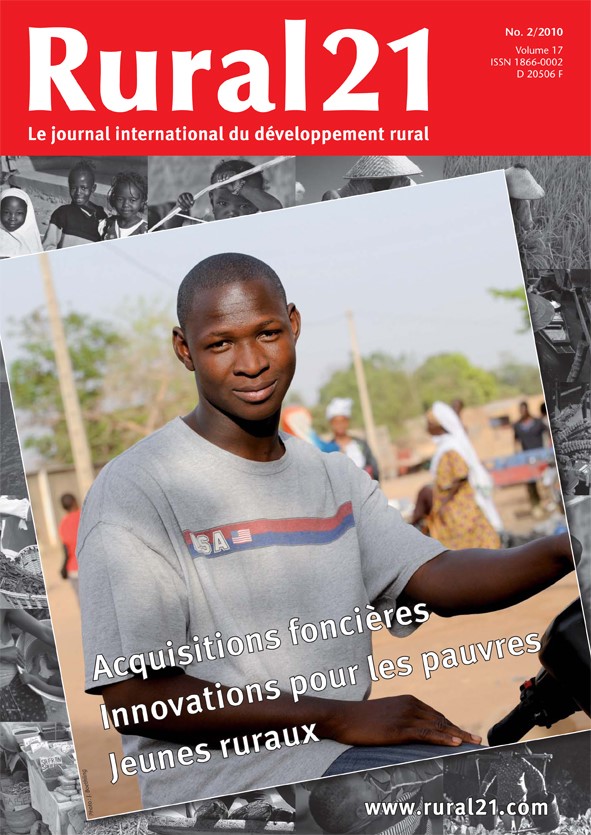Location
The international journal Rural 21 has dedicated more than 40 years to all topics surrounding rural development. Its ambition is to further those strategies and policies that strengthen rural areas of developing and newly industrialising countries and encourage their implementation. The journal addresses the complete range of relevant themes – from agriculture and fisheries via capacity building and education through to health and social security, energy supply and trade. Center-stage is always devoted to inquiring into how measures and strategies can contribute to global food security and to reducing poverty.
Rural 21 desires to further the dialogue between science and politics, the private sector, civil society and practitioners. Two platforms are designed for this purpose: Rural 21 in print is published four times a year, each issue highlighting a specific focus of rural development – this print edition is read in more than 150 countries. In parallel, Rural 21 online keeps the rural development community up to date on news and events, scientific findings and other print and online publications.
Rural 21 is published by DLG-Verlag GmbH in Frankfurt/Germany. Financial partners are BMZ (German Federal Ministry for Economic Cooperation and Development), GIZ (Deutsche Gesellschaft für Internationale Zusammenarbeit), DLG (German Agricultural Society – Deutsche Landwirtschaft-Gesellschaft), SDC (Swiss Agency for Development and Cooperation) and Helvetas Swiss Intercooperation.
The first issue of Rural 21 dates back to 1968. From 1974 to 2007, the journal was published in three languages entitled "entwicklung & ländlicher raum" / "agriculture & rural development" / "agriculture & développement rural". In 2008, the journal was relaunched as "Rural 21".
Members:
Resources
Displaying 206 - 210 of 319Pinning hopes on rural youth
More and more young people are leaving the rural areas and migrating to the cities. Although the industrial and the developing nations come from different starting points, such migration ultimately has the same effect on village life and the rural areas everywhere. In the industrial nations the agricultural population is ageing.
Tuning in to consumers: Tailoring African rice value chains to urban markets
In response to the 2008 food crisis, Senegal developed an ambitious food self-sufficiency programme which aims to entirely cover national rice consumption needs with local rice by 2015, mainly through massive investments in existing and new rice perimeters in the Senegal River Valley (SRV). It has yet to be seen, however, how the projected rice production boom will reach urban markets, where the product is often unknown or misconstrued.
Rural development in an urbanising world
Rural development and urbanisation are often seen as competing, but in most cases are intimately linked. It is essential that policies re? ect and support the many positive links between rural and urban areas, enterprises and people. This in turn requires a better understanding of urbanisation processes and the role of small towns.
Population dynamics and rural development in Burkina Faso
Labour migration, primarily to Côte d’Ivoire, masked the high rate of natural population growth in Burkina Faso for many years. However, since a political crisis began in this neighbouring country in late 1999, many Burkinabe have returned home. This posed major challenges, especially for rural areas. In the south of the country, shrewd population policy and appropriate rural development programmes have been e? ective in meeting these challenges.
Le défi de l'élevage
Dans les pays en développement, l'élevage représente plus d'un tiers du produit intérieur agricole brut ; la croissance et la transformation rapides du secteur de l'élevage dans de grandes régions de la planète ont débouché sur une amélioration des revenus et de la situation alimentaire d?un grand nombre de personnes. Cette « révolution de l'élevage » a cependant largement négligé les producteurs pauvres ; elle a, en outre, accru le risque de zoonoses et été à l'origine de dégradations environnementales.



